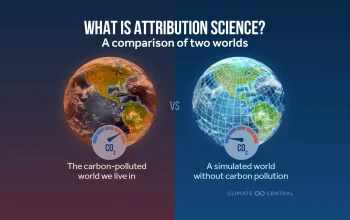Through blockchain technology, a new type of work platform has emerged: DAOs (decentralized autonomous organizations). These entities do not need central authority and operate according to bylaws digitally encoded on the blockchain.
Smart contracts and token-based voting can both facilitate decision-making on blockchain activity; however, these systems don’t come without problems of their own.
What is a DAO?
A Decentralized Autonomous Organization, or DAO, is a business structure run democratically by its members. Contributions come in the form of cryptocurrency tokens that grant voting rights; these tokens can then be traded publicly on an ledger and every member’s decision appears on its blockchain ledger.
A DAO’s open nature also makes it hard for members to hide or manipulate decisions – in contrast with centralized companies which employ opaque decision-making processes that leave no room for manipulation.
DAOs also prioritize security with cryptographic algorithms and smart contracts designed to combat fraud, as well as multi-sig wallets which require multiple signatories in order to complete transactions. Unfortunately, however, such measures do not entirely prevent hacking; numerous DAOs such as AnubisDAO – an animal-themed DeFi project accused of siphoning off $60 million – have already been targeted and compromised. Still, DAOs offer great potential to be more nimble and less risky than traditional companies; the key lies in developing strong communities among investors.
DAOs are a form of social network
A Decentralized Autonomous Organization, or DAO, is an autonomous social network running on blockchains and organized through smart contracts. Members holding governance tokens vote on decisions which are automatically executed via smart contracts on the blockchain – creating an equitable community that mobilizes quickly across borders to attract talent from around the world. Many optimistic thinkers predict that DAOs could revolutionize how people organize, eventually overshadowing some of the largest corporations or nation states altogether.
Though DAOs may offer immense potential, they present several serious obstacles and restrictions that can impede their widespread adoption. Notably, their lack of legal recognition could open them up to liabilities while restricting transactions with traditional entities; additionally they tend to be inefficient, leading to much time spent discussing changes instead of actually making any. They may also become illiquid over time as members may choose to leave due to various reasons.
DAOs are a form of crowdfunding
DAOs (Decentralized Autonomous Organizations) are an alternative form of crowdfunding which enables more democratic and transparent funding processes, with lower barriers of entry and costs due to reduced intermediaries.
DAOs serve a number of useful purposes, from community governance and supply chain management to creating digital artifacts for sharing. However, these platforms do have their drawbacks; one being slow decision-making as the voting population comprises people of differing education and knowledge levels.
DAOs have become an increasingly popular means to build community around products or services. A DAO could, for instance, automate Hollywood-style moviemaking where each participant — from A-list actor to costume designer — receives compensation not just for their labor but also as part of its long-term success.
DAOs are a form of governance
DAOs use blockchain technology to give community members more authority in decision-making and operational tasks, with pre-defined rules embedded into smart contracts ensuring transparency, security, and automation – creating an appealing human-machine model of governance that offers greater democratic transparency and an unbiased form of administration.
Decisions in a DAO are decided by community members who hold its governance tokens; those holding more tokens have greater voting power and their votes are recorded on its permanent blockchain ledger so all members can see each other’s voting activity.
However, these organizations face certain difficulties. For example, DAOs often find it hard to keep up with pending entity activity due to voting populations with differing levels of education, understanding of initiatives, and access to resources. Decision-making also takes longer because DAOs must educate their voting population on each issue before reaching decisions; all these issues could hinder wider adoption.








